
by BGF | May 31, 2019 | AI World Society Summit


AI World Society Summit 2019
Alliance of civic societies, non-government organizations, and thought leaders for a safe, peaceful, and Next Generation Democracy.
Mission:
A high-level international discussion about AI governance for a safe, peaceful, and Next Generation Democracy.
Organized by Boston Global Forum, and World Leadership Alliance-Club de Madrid, and sponsored by the government of the Commonwealth of Massachusetts.
Outcome: recommendations, suggestions for initiatives, solutions, and policies to build a society and world more peaceful, safer, and democratic with AI; the new social and economy revolution with AI that will shape better and bright futures in equality of opportunities in contribution, transparency, openness, in which capital and wealth cannot corrupt democracy, citizens will be recognized, rewarded and have a good life.
Format:
Combine between online and offline.
Moderators: Governor Michael Dukakis, and Nguyen Anh Tuan
Speakers: leaders of governments, political leaders, business leaders, prominent professors, thoughtleaders. Governor Michael Dukakis will send inviation leters to speakers to introduce mission, topics, outcome of the AI World Society Summit 2019.
Speakers can send their talks by video clip (maximum 30 minutes) or text to Content Team of the AI World Society Summit 2019, then the Content Team will post to AI World Society Summit section of Boston Global Forum’s website and deliver to other speakers, and discussants, and then their talks will be submitted to G7 Summit 2019 as a part of AIWS-G7 Summit Initiative.
Speakers:
The father of the Internet Vint Cerf
President of World Leadership Alliance-Club de Madrid Vaira Vike-Freiberga
Professor Neil Gershenfeld, MIT
Professor Professor Alex ‘Sandy’ Pentland, MIT
Professor Jason Furman, Harvard
Professor Joseph Nye, Harvard
Professor Thomas Patterson, Harvard
Professor Nazli Choucri, MIT
Professor David Parkes, Harvard
Professor Constantinos (“Costis”) Daskalakis, MIT
Professor David Silbersweig, Harvard
Professor Max Tegmark, MIT
Professor Philip Howard, Oxford
Professor Thomas Creely, Naval War College
Marc Rutenberg, President of EPIC
Paul Nemitz, Policymakers, European Commission
Liam Byrne, MP, UK
Nam Pham, Assistant Secretary of Business Dev & International Trade the Government of the Commonwealth of Massachusetts
David Bray, Executive Director, The People-Centered Internet coalition
Discussants:
Professor Koichi Hamada, Yale University, Economic Adviser to Japanese Prime Minister Shinzo Abe
Professor Jeffrey Shaw, Naval War College
Professor Mikhail Kupriyanov, LETI University , Russia
Ambassador Ichiro Fujisaki, President of Nakasone Peace Institute
Kazuo Yano, Hitachi
Eliot Weinman, AI World
Michael Krigsman, CXO Talk
Philippe Le Corre, Harvard
Mariko Gakiya, Harvard
Kevin Roose, New York Times
Allan Cytryn, Michael Dukakis Institute
Bill Ottman, CEO and Co-founder of Minds
Former Prime Minister of Australia, Peru, and former presidents, former prime ministers.
OECD experts
Professors, Scholars of Oxford, Cambridge, Stanford, Berkeley, Harvard, MIT
Content Team: edit, manage content, invite and engage speakers, discussants
Professor Thomas Patterson
Professor Nazli Choucri
Professor Thomas Creely
Professor Jeffrey Shaw
Dick Pirozzolo
Barry Nolan
David Bray
Nguyen Phan Nguyet Minh
Time: start April 25, 2019 at AI World Society – G7 Summit Conference to August 5, 2019.
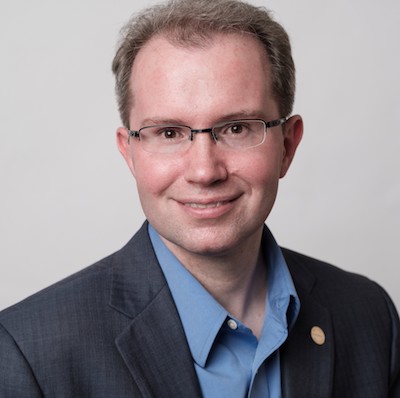
by BGF | Jun 10, 2019 | News
ALERT TO MEDIA:
Register in advance with: [email protected]
Executive Director for the People-Centered Internet coalition [www.peoplecentered.net], a Eisenhower and Marshall Memorial Fellow, World Economic Forum Young Global Leader, and one of the top “24 Americans Who Are Changing the World under 40”, Dr. David Bray is named to deliver a future-focused AI World Society Distinguished Lecture at the United Nations Headquarters on United Nations Charter Day June 26th, 2019.
This AI World Society Distinguished Lecture named as United Nations Academic Impact Charter Day Lecture.
The Lecture will be held at the United Nations Headquarters in New York City on United Nations Charter Day June 26th, 2019 by the Boston Global Forum and United Nations Academic Impact (UNAI). Dr. David Bray will deliver this keynote address on “Artificial Intelligence, the Internet and the Future of Data: Where Will We Be in 2045?”. He will focus on looking towards 2045: rapid technological change, global questions of governance, and the future of human co-existence.”
The AI World Society is honored to have Dr. Bray deliver this Distinguished Lecture. Since 2017, Dr. Bray has served as Executive Director for the People-Centered Internet coalition co-founded by Vint Cerf and focused on providing support and expertise for community-focused projects that measurably improve people’s lives using the Internet. Dr. Bray is both a World Economic Forum Young Global Leader and a Faculty Member for Singularity University focused on Impact and Disruption. He also is Chief Strategy Officer for the advanced geospatial company MapLarge and serves on the advisory boards of companies espousing human-centric solutions in a rapidly changing world. He also is a member of the Social Data Science Advisory Board at the Oxford Internet Institute, University of Oxford.
Dr. Bray’s keynote address will explore of how advances in the Internet, artificial intelligence, and data technologies transform communities and societies. By 2045, the United Nations will be 100 years old and this distinguished lecture will consider what possible changes will have occurred in the world and human societies by then.
Business Insider named Dr. Bray one of the top“24 Americans Who Are Changing the World under 40” and he is a Senior Fellow with the Institute for Human-Machine Cognition. He has served in a variety of leadership roles in turbulent environments, including bioterrorism preparedness and response from 2000-2005, humanitarian efforts in 2009, Executive Director for a bipartisan National Commission on research and development in 2013, and as a non-partisan Senior Executive where he received the global CIO 100 Award in both 2015 and 2017. He also was named an Eisenhower Fellow and a Marshall Memorial Fellow to Europe focused on Trans-Atlantic relations. Dr. David Bray is a member of AI World Society Standards and Practice Committee.
Maher Nasser, Director of the Outreach Division of United Nations, is the moderator
Dr. Bray’s talk will be followed by reflections of discussants and a larger conversation with the audience. The invited discussants include:
- Fabrizio Hochschild, United Nations Under Secretary-General and Special Adviser on the Preparations for the Commemoration of the Seventy-Fifth Anniversary of the United Nations
- David Silbersweig, Stanley Cobb Professor of Psychiatry at Harvard Medical School
- Nam Pham, Department of Business Development and International Trade, Massachusetts Government.
- Mariko Gakiya , Harvard T.H. Chan School of Public Health

The AI World Society Distinguished Lectures
The Boston Global Forum (BGF) and the Michael Dukakis Institute (MDI) for Leadership and Innovation organize the AI World Society (AIWS) Distinguished Lecture to honor people who have made outstanding contributions in AI that are associated with fostering a set of norms and best practices for the development, management, and uses of AI so that this technology is safe, humane, and beneficial to society.
The AIWS Distinguished Lectures focus on the ideas and visions of the honorees that brought them to their current position of achievement and highlight actions need to help shape a better world the future. The lectures are retained as part of the historical records at AIWS House, published in an e-book and featured in a special section of the Shaping Futures Magazine. BGF and MDI promote work on a 7-layer model for AI and society [https://bostonglobalforum.org/bgf2022/bgf2022/wp-content/uploads/sites/25/The-BGF-G7-Summit-Report.pdf].
About the Boston Global Forum
Based in Boston, Massachusetts, BGF was co-founded by Governor Michael Dukakis and professors, scholars of Harvard University to bring together the world’s thought leaders and experts to participate in open public forums to discuss and illuminate the most critical issues impacting the world at large.
BGF’s principal mission is to provide an interactive and collaborative world forum for identifying and developing action-based solutions to our most profound problems. Its method is to host gatherings of thought leaders and experts to identify and explore the most pressing societal concerns and propose creative and practical solutions.
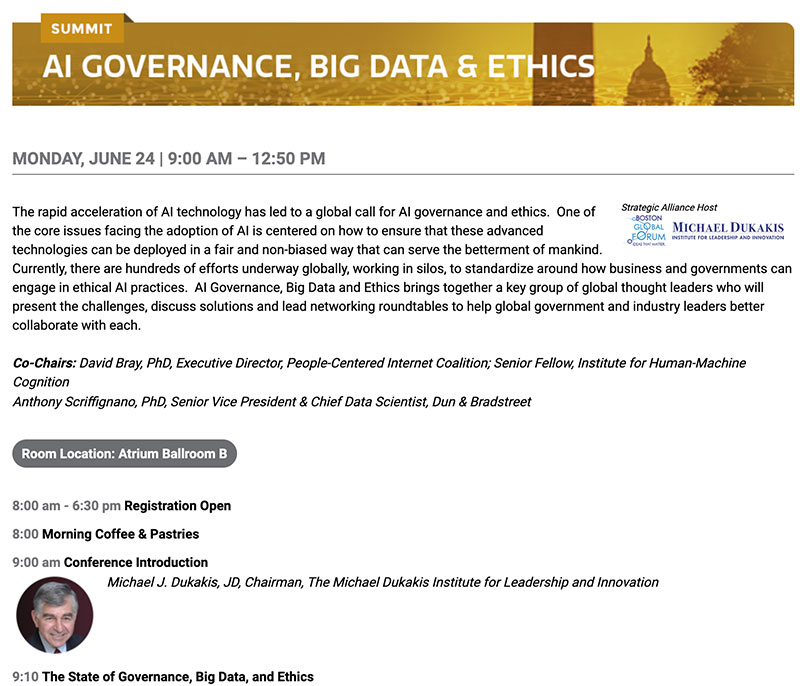
by BGF | Jun 10, 2019 | News

Boston Global Forum and Michael Dukakis Institute for Leadership and Innovation is proud to serve as a Strategic Alliance Host of AI World Government Conference 2019, for the AI Governance, Big Data and Ethics Summit on Monday, June 24, 9:00 AM – 12:35 PM.

Governor Michael J. Dukakis, Chairman of The Michael Dukakis Institute for Leadership and Innovation will deliver the opening remarks and conference introduction at the summit.
Other AIWS Standards and Practice Committee members to speak at the conference include Professor Thomas Patterson, Professor Nazli Choucri, and Professor Marc Rutenberg.
AI World Government Conference 2019 takes place at at Ronald Reagan Building, Washington, DC, from June 24 to June 26.
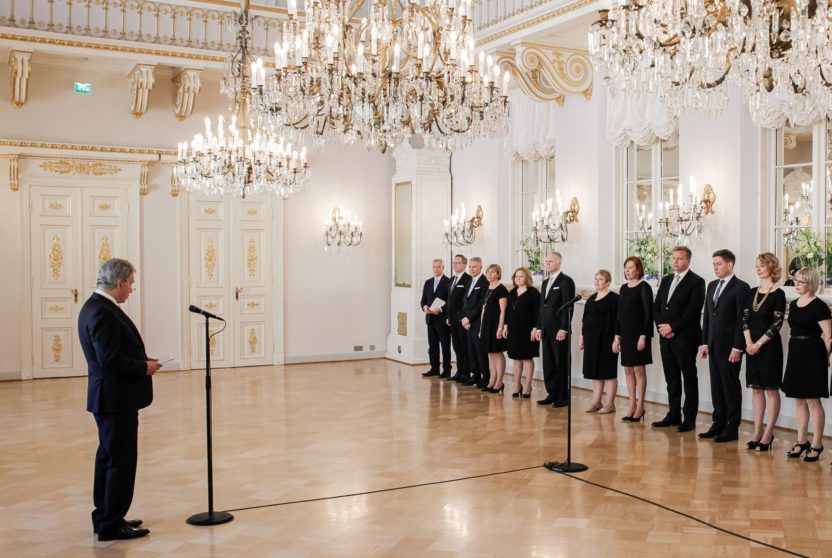
by BGF | Jun 10, 2019 | News

President Niinisto said:
“Very early in your term of office, at the beginning of July, Finland will take over the Presidency of the European Union. The six-month term will be exceptionally demanding in many ways, but I believe that you will hand over a more functional Union to your successor.”
Mr. President’s full speech can be found here.
The Boston Global Forum and the Michael Dukakis Institute for Leadership and Innovation honored President Sauli Niinisto with the World Leader for Peace and Cybersecurity Award at Global Cybersecurity Day December 12, 2018 at Loeb House, Harvard University.

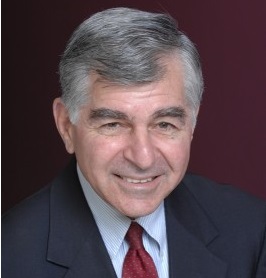
by BGF | May 27, 2019 | News

Boston, May 28, 2019
Dear friends,
In a world that is being buffeted on every side by technological innovations, political transitions and social turmoil, there is one thing most people can readily agree on about: The coming revolution of Artificial Intelligence holds both enormous promise and great potential peril.
The real world applications of AI will bring revolutionary changes and will have profound effects on the future of humanity. The changes will bring challenges to societal norms and economic models that we have relied on for decades. And we would be wise to prepare for all that will mean.
A century and a half ago, the industrial revolution brought with its great benefits that freed millions from back breaking toil and lifted our standard of living. But the industrial revolution also brought wrenching economic dislocation, new problems and new risks. And so, it will surely be with the coming AI revolution. Innovations now in the pipeline will bring economic dislocations and other risks that may well threaten peace and security around the globe. Our world as we know it could end, not with a bang, but rather with the click-click-click of a cyber attack.
In the past, when technological innovations led to the creation of terrible new weapons, it was only after they were used in warfare that the world came together to craft agreements, sign conventions, and work in union to prohibit their future use.
Technological innovation has now produced the threat of large-scale Cyber warfare. So, let’s do things differently this time. Let’s come together before these revolutionary weapons are used in acts of war between nation states. Let’s act now to develop global standards, International laws, societal norms, and binding conventions before the coming revolution sets loose terrible new destructive forces.
Our national governments have been slow to act. And International bodies such as the United Nations have yet to effectively address the problem. That is why the Boston Global Forum is calling for civilian organizations, non-profits, NGOs, and leaders, thinkers, scholars of every view and variety around the world, to join hands in an effort to build the Artificial Intelligence World Society.
And it is why we invite you now, to join in this important work, before the malware starts flying. We ask for your help and insights. We ask you to point us toward the breakthrough solutions that will help insure that the world gets all the best from applied artificial intelligence, while minimizing the threats and dangers.
We hope to make the AI World Society Summit a place where the brightest minds on the planet can work together, to find the innovative solutions that will help us build a brighter future. We ask you to join us, and we ask for your insights.
Here is our email address to send us your thoughts:
[email protected]
Here is our “snail mail” address to send us your correspondence:
67 Mount Vernon street, Unit F, Beacon Hill, Boston, MA 02108, USA
Here is a link where you can sign up to get our newsletter:
We look forward to hearing your ideas.
Sincerely.
Governor Michael Dukakis, Chairman and Co-founder of the Boston Global Forum
Nguyen Anh Tuan, CEO and Co-founder of the Boston Global Forum

Governor Michael Dukakis and Mr. Nguyen Anh Tuan awarded Estonian President Toomas Hendrik Ives “ World Leader in Peace and Cybersecurity “ at Global Cybersecurity Day December 12, 2017 at Harvard University.
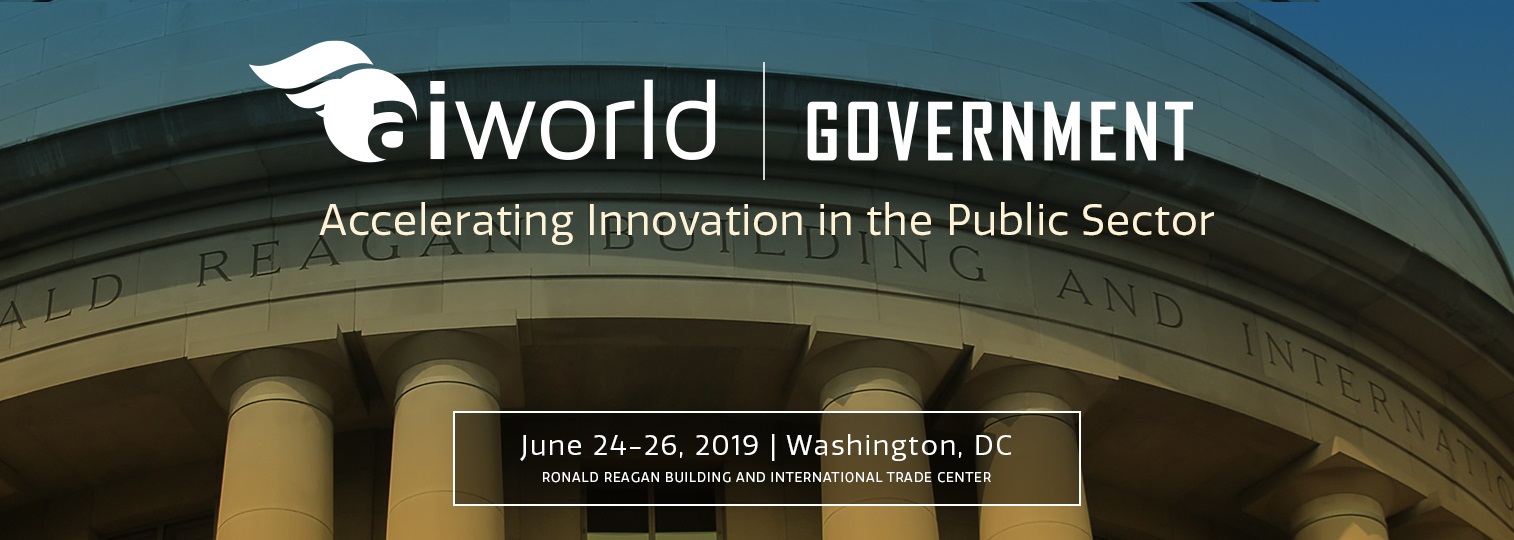
by BGF | May 27, 2019 | News
AI World Government provides a comprehensive three-day forum to educate and inform public sector agencies on the strategic and tactical benefits of deploying AI and cognitive technologies. With AI technology at the forefront of our everyday lives, data-driven government services are now possible from federal, state, and local agencies. This has led to the rapid rise in availability and use of intelligent automation solutions. AI World Government gathers leaders from across government, technology innovation, business and research to present the state of the practice and state of the technology to assist the public sector in leveraging advanced intelligent technologies to enhance government services. Special focus is given to the challenges, solutions, and opportunities that lie in the agency mission, and how agencies can prepare to deploy intelligent automation to address their goals.

AI World Government Conference, June 24-26, 2019, Washington DC
Boston Global Forum is the Strategic Alliance Host of AI World Government. Professor Thomas Patterson, Harvard University, Board Member of Boston Global Forum, will present AI World Society – G7 Summit Initiative including AI-Government and AI-Citizen in the morning June 24, 2019 at the event.

by BGF | May 31, 2019 | News
German Chancellor Angela Merkel, widely regarded as the most respected leader in the world, was awarded an honorary Doctor of Laws degree at Harvard University on Thursday.
The award ceremony took place during Morning Exercises, while the Chancellor also addressed the annual meeting of the Harvard Alumni Association during the Afternoon Program at the 368th Commencement.

Angela Merkel awarded the Doctor of Laws Degree at Harvard University on May 30, 2019.
Trained as a quantum chemist, Merkel spent her first 35 years living in Soviet-controlled East Germany working at a state-run research center until the fall of the Berlin Wall in 1989. That historic shift prompted Merkel to abandon scientific work and embrace a lifelong interest in politics, steadily ascending the ranks of a newly unified German government.
Elected chancellor in 2005, Merkel is the first woman and the first East German to hold her nation’s highest elective office. When she steps down in 2021, she will be Germany’s second-longest-serving leader of the modern era, after her former mentor, Helmut Kohl, who spoke at Harvard’s Commencement in 1990.

Angela Merkel delivers the keynote speech at Harvard’s 368th commencement ceremony at Harvard University on May 30, 2019. (Photo by Allison Dinner/AFP)
Past recipients of the honorary degree include former British Prime Minister Winston Churchill and former U.S. Secretary of State George Marshall.
On Global Cybersecurity Day, December 12th 2015 at Harvard University Faculty Club, The Boston Global Forum honored Chancellor Merkel as one of its “World Leaders for Peace, Security and Development’’. Global Cybersecurity Day is marked every year in various cities around the world as a way to inspire the shared responsibility of the world’s citizens to protect the safety, transparency and security of the Internet.


Other honorees of BGF’s World Leaders Award include Japan’s Prime Minister Shinzo Abe, former United Nations Secretary-General Ban Ki-Moon, Estonian President Toomas Hendrik Ilves, Finland President Sauli Niinisto, OECD Secretary General Ángel Gurría, and most recently Vint Cerf, one of the Father of Internet.

by BGF | May 27, 2019 | News
Over the past fifty years, two digital revolutions—in computing and communication—have transformed our world. They have led to unprecedented productivity, generated enormous wealth, and fundamentally altered everyday life. But these revolutions left a great many people behind: today, half of the planet is not connected to the Internet, inequality is on the rise, and issues around privacy, security and civility emerge daily. With more foresight, we could have avoided many of these pitfalls.
We now have another chance. Neil Gershenfeld, Alan Gershenfeld, and Joel Cutcher-Gershenfeld foresee a third and even greater digital revolution in fabrication. The third digital revolution is about much more than 3D printers and hobbyist makers; it’s about the convergence of the digital and physical worlds. Drawing on the history of digitization and exploring the frontiers of research, Designing Reality outlines a vision for a future radically transformed by digital fabrication that takes us from community fab labs to personal fabrication to replicators right out of Star Trek that will allow anyone to make (almost) anything.

Professor Neil Gershenfeld speaks at AI World Society – G7 Summit Conference at Loeb House, Harvard University, April 25, 2019.
Accelerating digital fabrication capabilities could enable self-sufficient local communities and global sustainability. But it could also reinforce existing inequality and create new, destabilizing ‘fab’ divides. We can—and must—proactively shape our societies so digital fabrication will benefit everyone, rather than just the fortunate few. The first two digital revolutions caught us flatfooted. We can do better this time.
Designing Reality is your guide to not just surviving but thriving in the third digital revolution.
Prof. Neil Gershenfeld is the Director of MIT’s Center for Bits and Atoms, where his unique laboratory is breaking down boundaries between the digital and physical worlds, from pioneering quantum computing to digital fabrication to the Internet of Things. Technology from his lab has been seen and used in settings including New York’s Museum of Modern Art and rural Indian villages, the White House and the World Economic Forum, inner-city community centers and automobile safety systems, Las Vegas shows and Sami herds. He is the author of numerous technical publications, patents, and books including Designing Reality, Fab, When Things Start To Think, The Nature of Mathematical Modeling, and The Physics of Information Technology, and has been featured in media such as The New York Times, The Economist, NPR, CNN, and PBS. He is a Fellow of the American Physical Society, has been named one of Scientific American’s 50 leaders in science and technology, as one of 40 Modern-Day Leonardos by the Museum of Science and Industry, one of Popular Mechanic’s 25 Makers, has been selected as a CNN/Time/Fortune Principal Voice, and by Prospect/Foreign Policy as one of the top 100 public intellectuals. He’s been called the intellectual father of the maker movement, founding a growing global network of over one thousand fab labs that provide widespread access to prototype tools for personal fabrication, directing the Fab Academy for distributed research and education in the principles and practices of digital fabrication, and chairing the Fab Foundation.
Professor Neil Gershenfeld is a keynote speaker at AI World Society Summit 2019. The full video of his talk can be found here.
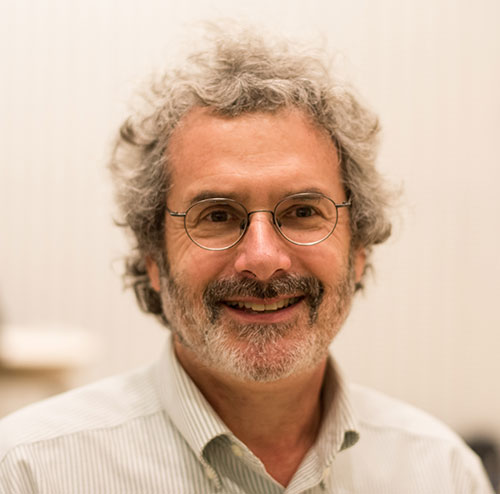
by BGF | Jun 6, 2019 | Uncategorized
Director, The Center for Bits and Atoms, MIT.
Prof. Neil Gershenfeld is the Director of MIT’s Center for Bits and Atoms, where his unique laboratory is breaking down boundaries between the digital and physical worlds, from pioneering quantum computing to digital fabrication to the Internet of Things. Technology from his lab has been seen and used in settings including New York’s Museum of Modern Art and rural Indian villages, the White House and the World Economic Forum, inner-city community centers and automobile safety systems, Las Vegas shows and Sami herds. He is the author of numerous technical publications, patents, and books including Designing Reality, Fab, When Things Start To Think, The Nature of Mathematical Modeling, and The Physics of Information Technology, and has been featured in media such as The New York Times, The Economist, NPR, CNN, and PBS. He is a Fellow of the American Physical Society, has been named one of Scientific American’s 50 leaders in science and technology, as one of 40 Modern-Day Leonardos by the Museum of Science and Industry, one of Popular Mechanic’s 25 Makers, has been selected as a CNN/Time/Fortune Principal Voice, and by Prospect/Foreign Policy as one of the top 100 public intellectuals. He’s been called the intellectual father of the maker movement, founding a growing global network of over one thousand fab labs that provide widespread access to prototype tools for personal fabrication, directing the Fab Academy for distributed research and education in the principles and practices of digital fabrication, and chairing the Fab Foundation. Dr. Gershenfeld has a BA in Physics with High Honors from Swarthmore College, a Ph.D. in Applied Physics from Cornell University, honorary doctorates from Swarthmore College, Strathclyde University and the University of Antwerp, was a Junior Fellow of the Harvard University Society of Fellows, and a member of the research staff at Bell Labs.
Research advances by Dr. Gershenfeld and his students and colleagues working at the boundary between physical science and computer science include: one of the first complete quantum computations, using nuclear spins in molecules; microfluidic bubble logic, with bits that transport materials as well as information; physical one-way cryptographic functions , implemented by mesoscopic light scattering; noise-locked loops that entrain on codes, which led to analog logic integrated circuits that use continuous device dynamics to solve digital problems; asynchronous logic automata to align hardware with software; Internet 0 for interdevice internetworking; microslot probes for ultra-small-sample structural studies; integrated 6-axis inertial measurement based on the dynamics of trapped particles; charge source tomography for electric field imaging and intrabody signaling; electropermanent actuators for high torque at low RPM with static holding; and additive assembly of functional digital materials that can be used in the highest modulus ultralight structures.
He’s spoken for events including TED (and another, and another), the The National Academy of Sciences, the Royal Academy, the National Science Foundation, the White House, the President’s Council of Advisors on Science and Technology, the Library of Congress, the World Economic Forum, the World Science Festival, the Science & Entertainment Exchange, the Whole Earth Catalog, ESOF, Google, IBM, EDUCAUSE, ACADIA, the ACM/IEEE Conference on Supercomputing, IEDM, Etech, APMM, Solid, and Maker Faire.
His movie credits include Minority Report and Big Hero 6.
He’s played the bassoon, ski patrolled and raced, and was a swimmer.























